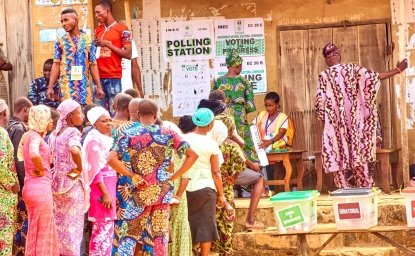#80 Transition Toward Democracy in Spain: Opinions, Mood, and Elite Behavior

By Rafael López Pintor
This paper is intended to give an explanation of the transition process from authoritarian rule to democracy in Spain. It focuses on the relationship between general states of public opinion and the behavior of the elite, both regime and opposition. A considerable amount of empirical information is provided to illustrate the socioeconomic situation of the country and the opinion mood during the transitional period.
Relying mostly on certain classical theorists--Machiavelli, De Tocqueville--an explanation of the Spanish transition is advanced along the following reasoning: The way in which transition toward democracy has taken place in Spain is as much a function of he internal dynamics of theruling sectors of the Franco regime as it is of pressures from those sectors. The conjunction of both factors precipitated the change only within the presence of two catalytic elements: the natural passing of Franco, and the role of a King who had been appointed by Franco and enjoyed the loyalty of the armed forces. Against a societal background of decreasing social inequalities, increasing cultural secularization, economic crisis, and concern about the future, government and opposition would meet the democratic covenant--perhaps because the most staunch Francoists did not feel strong enough to maintain the authoritarian system without paying high costs, difficult to anticipate; while, on the other hand, the regime's political opponents also did not feel strong enough to attempt its overthrow without risking failure.

Latin America Program
The Wilson Center’s prestigious Latin America Program provides non-partisan expertise to a broad community of decision makers in the United States and Latin America on critical policy issues facing the Hemisphere. The Program provides insightful and actionable research for policymakers, private sector leaders, journalists, and public intellectuals in the United States and Latin America. To bridge the gap between scholarship and policy action, it fosters new inquiry, sponsors high-level public and private meetings among multiple stakeholders, and explores policy options to improve outcomes for citizens throughout the Americas. Drawing on the Wilson Center’s strength as the nation’s key non-partisan policy forum, the Program serves as a trusted source of analysis and a vital point of contact between the worlds of scholarship and action. Read more

Explore More
Browse Insights & Analysis
Latin American Program Working Paper Series (51-100)

Georgia’s Unrest and the Country’s Long Road to Europe

Navigating the New Cold War: US-China Relations Post-Election
